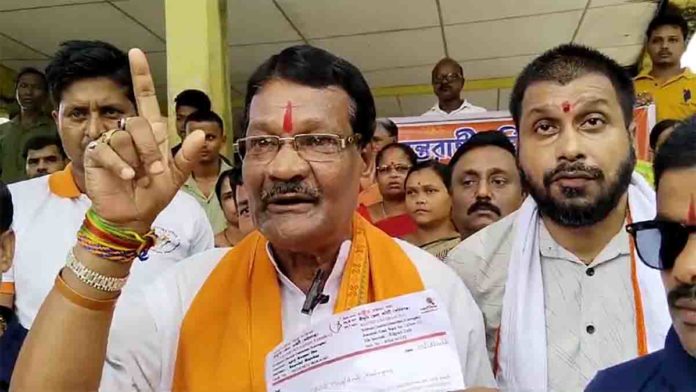Karimganj questions why persecuted Hindus in Bangladesh aren’t offered refuge in India, citing past support for Bangladesh in 1971 war and for Sheikh Hasina.
In Karimganj, a district along the India-Bangladesh border, tensions have escalated following alarming reports of attacks on Hindu temples and the horrific incidents of rape and murder of Hindus in Bangladesh. The situation has led to widespread protests and demands for action from Indian authorities.
The Antarrashtriya Hindu Parishad and Rashtriya Bajrang Dal have been at the forefront of these protests. They have submitted memorandums to the Deputy Commissioner of Karimganj, addressed to the President and Prime Minister of India, and the Chief Minister of Assam. The memorandums call for immediate intervention to address the crisis faced by Hindus in Bangladesh.
A key point raised by these groups is a pressing question: If Sheikh Hasina the former Prime Minister of Bangladesh could be sheltered in India, why can’t the same protection be extended to the persecuted Hindus in Bangladesh? They argue that during the 1971 war between East and West Pakistan, the than Prime Minister of India supported Bangladesh despite international norms, and they urge for similar support now.
The leaders of Rashtriya Bajrang Dal emphasized that, just as India helped Bangladesh during the 1971 conflict, it should now extend refuge to Hindus suffering from persecution. They call for a compassionate and timely response to provide safety and security to those affected.
The ongoing protests reflect a strong sentiment among these groups for the protection of Hindu minorities and a call for decisive action from the Indian government to address the humanitarian crisis across the border.

